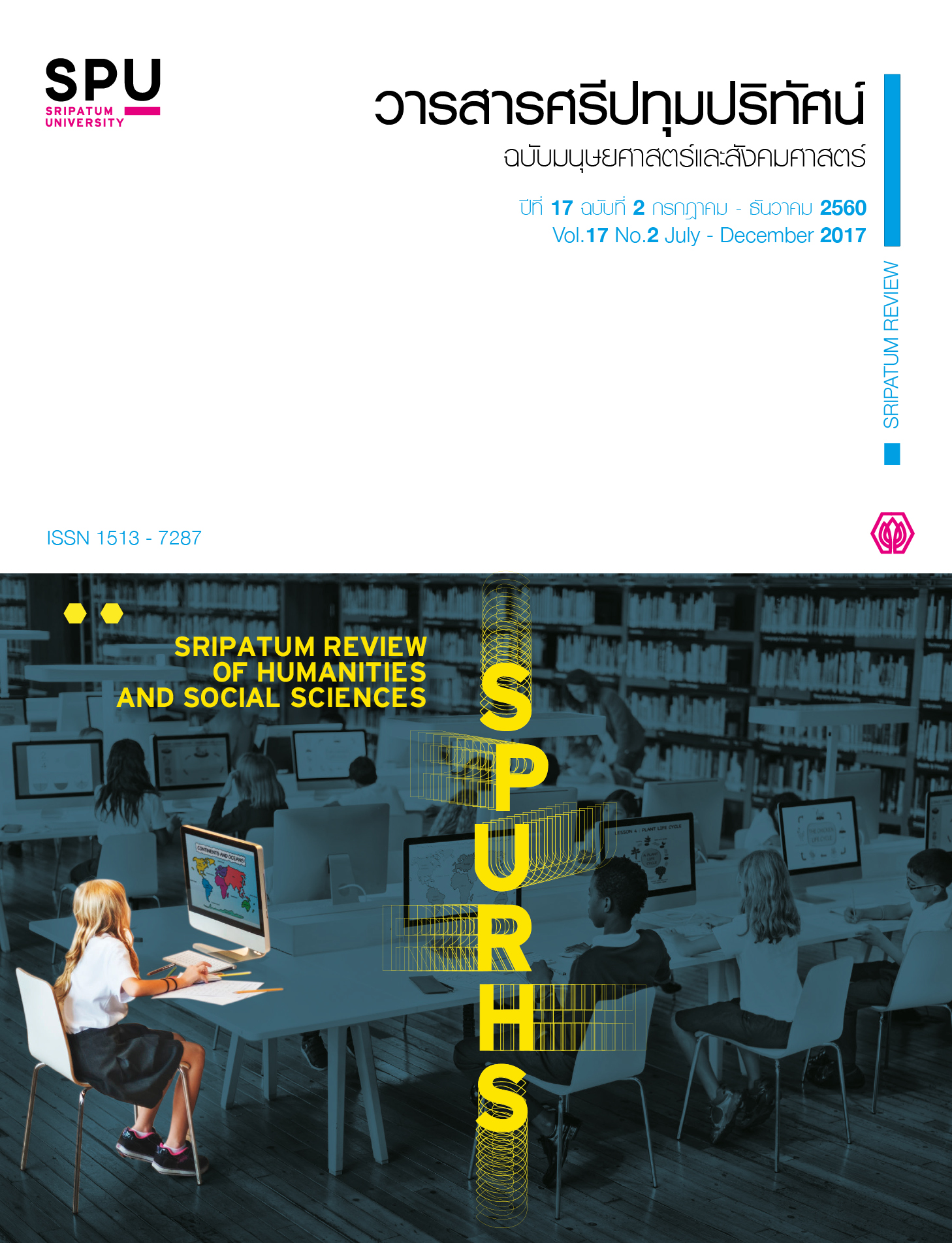BUDDHIST PSYCHOLOGICAL OPERATION FOR PROPAGATION OF BUDDHISM
Main Article Content
Abstract
The purposes of this article are to integrate the psychological practice and the Buddhist psychology for propagation of Buddhism. The principles of psychological practice consists of two aspects, that is, in the positive aspect, it is the enhancement, while in the negative aspect it is the destruction. The concept of the needs for the psychological practice is to reach the goal or individual functions only. The basic psychological practice is based on the Buddhist psychology, but the Buddhist psychology propagated by the Buddha is the indication of the truth that results in the faith leading to the acknowledgement. The methods of propagation of Buddhism used by the Buddha are the public psychology consisting of the propaganda, public relations, inducement with the reality or the truth in order to let the practitioners realize the real effects resulting in the change of attitude, emotion and feeling. The Buddha determined the stratagem in the aspect of communication, propagation and reaching of the mass with the use of the social psychology power to create the faith. Therefore, the psychology for propagation of Buddhism employed by the Buddha during his life time period is the foundation for the psychological practice at the present time. The Buddhist missionaries or Buddhist missionary monks who have ability and knowledge but do not achieve success because they have strategic problems. Some monks can lecture and teach well but cannot create faith in the mind of the others. So they do not achieve success. The Buddhist missionaries have to know one’s self and others and build up the network for propagation of Buddhism in order to achieve the success.
Article Details
1. กองบรรณาธิการสงวนสิทธิ์ในการพิจารณาและตัดสินการตีพิมพ์บทความในวารสาร
2. บทความทุกเรื่องจะได้รับการตรวจสอบทางวิชาการโดยผู้ทรงคุณวุฒิ แต่ข้อความและเนื้อหาในบทความที่ตีพิมพ์เป็นความรับผิดชอบของผู้เขียนแต่เพียงผู้เดียว มิใช่ความคิดเห็นและความรับผิดชอบของมหาวิทยาลัยศรีปทุม
3. การคัดลอกอ้างอิงต้องดำเนินการตามการปฏิบัติในหมู่นักวิชาการโดยทั่วไป และสอดคล้องกับกฎหมายที่เกี่ยวข้อง
References
กลุ่มงานอาจารย์ กองบัญชาการศึกษา. 2559. เอกสารประกอบการเรียนรู้ด้วยตนเอง หมวดวิชางาน ชุมชนมวลชนสัมพันธ์. กรุงเทพมหานคร : มปท.
คณะกรรมาธิการ การศาสนา ศิลปะและวัฒนธรรม สภาผู้แทนราษฎร. 2542. รายงานกรณีวัด พระธรรมกาย. กรุงเทพมหานคร : โรงพิมพ์มหาจุฬาลงกรณราชวิทยาลัย.
จุฑารัตน์ เอื้ออำนวย. 2549. จิตวิทยาสังคม. พิมพ์ครั้งที่ 2. กรุงเทพมหานคร : แอคทีฟพริ้นท์.
นฤมล มาร์คแมน. 2533. หลักพุทธจิตวิทยาเบื้องต้น. พิมพ์ครั้งที่ 2, กรุงเทพมหานคร : มหาวิทยาลัยรามคำแหง.
พระเทพโสภณ (ประยูร ธมฺมจิตฺโต) และคณะ. 2548. พระพุทธศาสนากับวิทยาการโลกยุคใหม่. พิมพ์ครั้งที่ 2. กรุงเทพมหานคร : บัณฑิตวิทยาลัย โรงพิมพ์มหาจุฬาลงกรณราชวิทยาลัย.
พระธรรมปิฎก (ป.อ.ปยุตฺโต). 2542. กรณีธรรมกาย (ฉบับคัดตัวอย่าง). พิมพ์ครั้งที่ 4. กรุงเทพมหานคร : โรงพิมพ์สหธรรมิก จำกัด.
พระธรรมปิฎก (ป.อ.ปยุตฺโต). กรณีธรรมกาย. พิมพ์ครั้งที่ 11. กรุงเทพมหานคร : โรงพิมพ์มหาจุฬาลงกรณราชวิทยาลัย.
พระพรหมคุณาภรณ์ (ป.อ.ปยุตฺโต). 2550. พจนานุกรมพุทธศาสตร์ ฉบับประมวลธรรม. พิมพ์ครั้งที่ 15. กรุงเทพมหานคร : จันทร์เพ็ญ.
พระมหาสมจินต์ สมฺมาปญฺโญ. 2547. วิพากษ์แนวคิดพระพุทธศาสนาสำหรับโลกหลังยุคใหม่, กรุงเทพมหานคร: มหาวิทยาลัยมหาจุฬาลงกรณราชวิทยาลัย.
มหาจุฬาลงกรณราชวิทยาลัย. 2539. พระไตรปิฎกภาษาไทย ฉบับมหาจุฬา ลงกรณราชวิทยาลัย. 45 เล่ม. กรุงเทพมหานคร : มหาวิทยาลัยมหาจุฬาลงกรณราชวิทยาลัย.
สถาบันจิตวิทยาความมั่นคง. 2553. คู่มือการปฏิบัติการข่าวสาร. กรุงเทพมหานคร : สถาบันวิชาการป้องกันประเทศ.
สถาบันจิตวิทยาความมั่นคง. 2555. คู่มือการปฏิบัติการจิตวิทยา ระดับฝ่ายอำนวยการ. พิมพ์ครั้งที่ 2. กรุงเทพมหานคร : สถาบันวิชาการป้องกันประเทศ.
สถาบันจิตวิทยาความมั่นคง.2553. อภิธานศัพท์. กรุงเทพมหานคร : สถาบันวิชาการป้องกันประเทศ.


